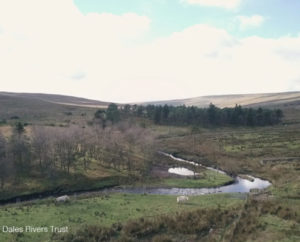 Natural flood management pilot schemes in Yorkshire are the focus of an iCASP project to develop best practice for modelling and monitoring. Defra’s 25 year Environment Plan highlights the important role that natural flood management techniques can play in flood risk management. The Yorkshire work will therefore contribute valuable learning for the rest of the UK. The iCASP project will help to develop best practice and show how natural flood management can deliver a range of benefits in addition to flood protection.
Natural flood management pilot schemes in Yorkshire are the focus of an iCASP project to develop best practice for modelling and monitoring. Defra’s 25 year Environment Plan highlights the important role that natural flood management techniques can play in flood risk management. The Yorkshire work will therefore contribute valuable learning for the rest of the UK. The iCASP project will help to develop best practice and show how natural flood management can deliver a range of benefits in addition to flood protection.
During the project, iCASP impact translation fellows and academics will help to road-test the guidance on setting up natural flood management schemes that was released in the Environment Agency’s Evidence Base on Working With Natural Processes. Guided by relevant research expertise, they will also try out approaches to measuring the range of co-benefits delivered by approaches such as tree planting and building leaky woody dams.
The aim will be to demonstrate a greater return on the investment so that the business case for future funding of natural flood management will be easier to make. Similar schemes elsewhere in the UK claim not just to deliver flood protection benefits but also to improve water colour and quality, provide more varied habitat for wildlife and enhance the feeling of well-being for visitors.
iCASP will ensure that evidence of effectiveness and other insights about design and maintenance are passed on to larger flood alleviation schemes such as in Calderdale, Leeds, York and Sheffield. Their flood management teams are keen to integrate natural flood management processes with hard engineered structures at even greater catchment scale to give greater protection to homes, businesses and transport links in the region.
Partners involved include the Environment Agency, JBA and Yorkshire Dales Rivers Trust. The overall academic lead will be Professor Colin Brown from the University of York supported by a team from the University of Leeds.
